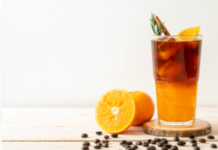MALINI ADAPUREDDY
New Delhi– Vacations mean fun, food, and fashion. Be it on the beachside or in the mountains, it leaves you with unforgettable memories and infinite pictures on your social media pages. You dress up in your best clothes, do touristy things, and click countless pictures. All these things are fun until the time you look into the mirror and realise your skin has paid the price.
The intense heat of the sun affects our skin in many ways. Direct sun rays make our skin look dull and tanned. There are multiple products available on the market that claim to effectively help you prevent tanning, but we always get confused while choosing the best one out of them. The right kind of sunscreen can protect your skin from sun damage and is the perfect companion for your vacation, especially in summer.
To help you pick out the right sunscreen for your skin, Malini Adapureddy, Founder & CEO at Deconstruct, a science-backed skincare brand, has drawn up a list of ingredients that can be effective in reducing tanning. The thumb rule here is to always know and read about the ingredients before buying any skincare product:
Alpha Arbutin
Alpha Arbutin is a tyrosinase inhibitor, which means it inhibits tyrosinase and prevents Melanogenesis. It prevents tanning and treats hyperpigmentation by interfering with the production of melanin.
Vitamin C
Vitamin C is a skin-lightening ingredient that effectively gets rid of tanning, hyperpigmentation and dark spots. Moreover, Vitamin C is shown to have sun-damage protection as well. So, not only does it remove tanning, it prevents it to some extent as well.
Kojic Acid
Kojic Acid can remove tanning as it penetrates into the deeper layers of the skin and inhibits Melanogenesis, i.e., the synthesis of melanin.
Azelaic Acid
Azelaic Acid is effective in treating hyperpigmentation and tanning by slowing down the production of melanin.
Glycolic Acid
Glycolic Acid is an AHA, which works by sloughing away dead skin cells making the face look brighter. But, there’s a catch, using Glycolic Acid regularly can make your skin sensitive to sunlight, meaning you’d be more prone to tanning. So, it’s important to use sunscreen and avoid exposure to direct sunlight as much as possible while using Glycolic Acid.
Whether you are at home or heading out these beauty ingredients ought to be part of your skincare routine no matter what the season is. (IANS)














